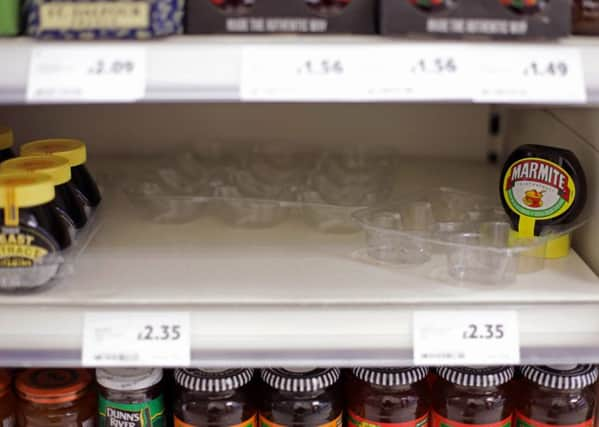Martin Flanagan: Depressed pound opens up a can of worms
This article contains affiliate links. We may earn a small commission on items purchased through this article, but that does not affect our editorial judgement.


Britain’s summertime vote to quit the European Union sent sterling spiralling downwards. That seems to have emboldened food giant Unilever last week to demand that Tesco pay more for its goods wholesale after the weaker pound raised production, particularly input, costs.
The spat between the Marmite-to-PG Tips manufacturer and Britain’s biggest supermarket business was shortlived after Tesco delisted Unilever products in what was an eyebrow-raising clash of the producer/retailer titans.
Advertisement
Hide AdAdvertisement
Hide AdNeither of these well-known brands wants to alienate the public, who in times of austerity have looked gratefully to deflation to help counter the squeeze on their pockets.
But the underlying problem will not go away, as post-Brexit sterling has not shown any real signs of recovery and food manufacturers exert pressure for help as they buy dollar-denominated commodities and ingredients overseas with a degraded pound.
Obviously, they would like the supermarket giants to handle a bit of that pain. But this is where the irresistible force meeting the immovable object.
Tesco, Asda and the like are doing everything they can to repair etiolated profit margins amid the market share plunderings of the discounters Aldi and Lidl.
Even with nascent signs among some of the big four of a slight recovery in like-for-like sales, they are petrified about driving customers out of the door again to rivals through passing on some of the extra costs. So much guff is talked in retailing about constructive relationships with suppliers. But when push comes to shove both are trying to get the best end of the stick.
Food and beverage manufacturers are dealing with a sharp post-Brexit change in currency circumstances; but it comes as their retail customers are in a largely convalescent stage. The latter have already picked the relatively low fruit through cost cutting and retrenchment, and there is not a lot of extra room for manoeuvre.
Both sides will make public relations noises, while working for compromise behind the scenes. But the tension remains.
